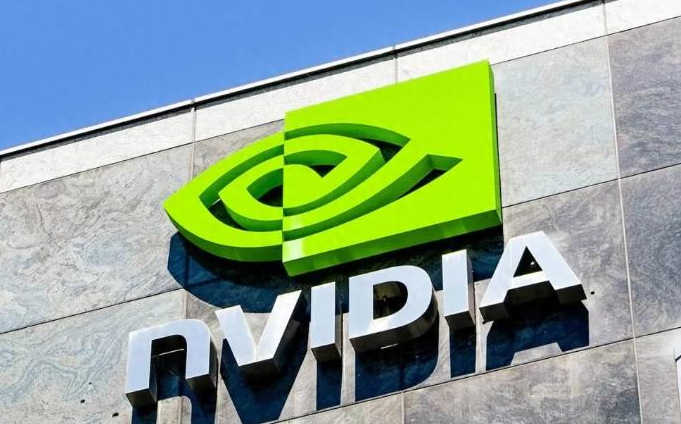China's Antitrust Probe into Nvidia: Will It Burst the US AI Bubble?
Advertisements
In the bustling corridors of Wall Street, a notion lurks that can send shivers down the spine of investors: the realization that the tide has turned for the industrial giants dominating the market. While startup ventures may dent the portfolio occasionally with their losses, it's the steadiness of the behemoths that investors keenly monitor. The market operates on confidence, and when that confidence falters, the results can be catastrophic. This concern not only reflects a cautious attitude towards inexplicably inflated valuations but also echoes a historical pattern seen during the bursting of the Internet bubble at the turn of the millennium.
The phenomenon of the current AI bubble bears an uncanny resemblance to the dot-com frenzy back in 2000. In both instances, an inflated sentiment propelled valuations to staggering heights. Back then, American tech companies dazzled investors with promises of digital transformation, but when reality struck, it exposed the hollow foundation of many of these valuations. Fast forward to today, as the battle for financial supremacy between the U.S. and China intensifies, American markets seem to be showcasing AI-related companies akin to the nostalgic recounting of the Internet boom, loudly proclaiming their unparalleled potential. However, this has drawn attention to the potential pitfalls of such strategies, leaving the question: what, or who, will ultimately puncture this swelling bubble?

A critical pivot in this ongoing drama involves NVIDIA, a leading AI chip manufacturer, now facing scrutiny from Chinese regulators due to allegations of anti-competitive practices. The announcement of a formal investigation into NVIDIA by China's State Administration for Market Regulation on December 9 sent tremors through the stock market, causing NVIDIA's shares to dip slightly—a modest setback, but indicative of a broader concern. Despite these hiccups, NVIDIA's financial statements reveal a resilient presence in the Chinese market, which continues to contribute significantly to its bottom line even amid geopolitical strife. For instance, NVIDIA's market share in China had risen to 25% by the end of 2023, largely attributed to the insatiable demand for AI technologies.
Nonetheless, this demand comes with caveats. The growing prowess of domestic GPU manufacturers and increased competition poses a formidable challenge for NVIDIA. As U.S. sanctions inhibit the export of advanced GPU technologies, it remains to be seen how NVIDIA will navigate its dual-edged sword strategy of maintaining market dominance while complying with international regulations. NVIDIA's revenues in China saw a dramatic decline in 2023 but displayed an optimistic recovery trajectory in 2024, underscoring the complexities of its operational strategies and market dynamics.
However, concerns have surfaced regarding the ethical implications of NVIDIA's sales tactics in China, which have been described as aggressive and non-transparent, including bundling products with less favorable conditions. These practices, coupled with broader anti-competitive grievances emerging not only in China but also from the European Union and the U.S., signify a critical juncture for NVIDIA, indicating that even the giants of the industry are not above regulatory scrutiny.
There’s little doubt about the technological brilliance embodied by NVIDIA’s product lineup. Their innovations have propelled the AI chip sector forward, but skepticism arises when examining whether this success translates into tangible economic growth. In fact, as the AI hype continues to swell, it raises questions about substance versus perception in market valuations. Many companies are hastily labeling their ventures with 'AI' tags, attempting to ride the wave of hype without solid follow-through—a stark reminder of the internet bubble era.
Reflecting on the past, the bursting of the 2000 internet bubble was catalyzed by regulatory warfare against Microsoft, which signified a shift in investor sentiment. In that moment, the excitement of transformation crumbled, revealing an overstretched market that had counted its profits before they materialized. Fast forward to the present, and similar currents are evident as the AI sector attracts vast sums of investment with enticing potential but risks falling victim to a premature rush of capital.
American governmental actions seem complicit in this volatility. As inflation surges and recession looms on the horizon, the populace finds itself ensnared in a cycle of rising living costs and stagnant employment prospects. While the stock market is buoyed by selective investments in a handful of AI-dominated firms, the broader manufacturing sector in the U.S., which historically provided stable employment and innovations, languishes. Companies like Boeing and Intel, once the crown jewels of American manufacturing, face significant operational challenges and a shifting corporate landscape.
Despite the analytical misconceptions prevailing in financial markets, the everyday realities of American workers are starkly different. The sentiment on Wall Street does not mirror the anxieties of those grappling with economic uncertainty. Amid this dichotomy, rogue operators are cropping up, masking poor performance under the flourishing terminology of AI, but with regulatory bodies seemingly retreating from enforcing stricter measures.
China’s recent move to initiate antitrust probes against NVIDIA signals more than just a response to market misconduct; it reflects a broader determination to assert a foothold in the global semiconductor arena. Domestic advancements in chip design and production capacities indicate that China is not merely a passive player in the game but is preparing to carve out its niche amidst growing competition. Historical context reveals that when nations possess not only the capabilities but also the will to respond to aggressive international actions, significant shifts can follow.
To encapsulate, this contemporary antitrust action against NVIDIA could be the catalyst needed to unravel the tensions surrounding international tech competition. This encounter might send shockwaves through the U.S. markets and, subsequently, the inflated AI bubble, as stakeholders come to grips with realities colored by domestic capabilities and morals over mere capitalistic escapism. It's a reminder that progress requires accountability, and in a landscape driven by technological advancement, equitable practices must not be overshadowed by aggressive expansion.
Leave your thought here
Your email address will not be published. Required fields are marked *